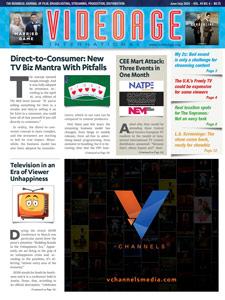Comparing the retention level of print versus online, print wins overwhelmingly, and authoritative academics confirm it. I’m wondering if advertising follows the same pattern.
 The question is whether information is better retained and/or assimilated from print or online.
The question is whether information is better retained and/or assimilated from print or online.
In my view, when people read a printed version of an article, they tend to pay closer attention, focus better and are able to retain more information.
When reading an article online, people tend to gloss over it or do it while engaged in other tasks, for example, reading e-mails on and off.
Have you noticed that people seem annoyed if the phone rings for voice or text messages when reading print? On the other hand, when reading online and the phone rings, people immediately answer or at least check out who’s calling.
Now, it is also true that long print articles tend to bring somnolence. But in my view, this effect is more prominent if looking at a screen rather than at a print article, as we all know from the television experience, which tends to induce sleep better than sedatives.
I remember reading that we become sleepy when watching TV due to the flickering caused by the interlaced scan. This is because the human brain works at four basic frequencies: Alpha, Beta, Theta and Delta. Beta waves are produced when one is thinking and using one’s higher faculties, like reading, and Delta is associated with sleep.
The light and flicker rates of the TV set cause the brain to drop down to a level of activity somewhere between Alpha and Theta: a sleepy state of mind where the higher critical functions are turned off.
However, it’s not clear to me whether progressive scan used by computer screen and HD digital TV sets will also bring on somnolence.
In addition, while researching this topic I wasn’t surprised to find out — as indicated by the Norwegian science organization ScienceNordic — how studies show that when people read text on paper their understanding is deeper and longer lasting than if they read that same text online.
Actually, to corroborate this, I found two academics, three university studies and one expert. (And when I research a topic online, I print the findings for a better reading.)
According to Anne Mangen of Norway’s University of Stavanger, “those who read on computers understand less than those who read on paper.” This is because “the brain has an easier task when you can touch as well as see.”
Douglas Rushkoff, a professor of media theory at CUNY, has been quoted as saying that “we don’t go into issues in depth when we read from a computer.”
At the University of Virginia Darden School of Business, up to 80 percent of students surveyed said they would not recommend the Kindle for in-class learning.
Similarly, in a study at Reykjavik University, 70 percent of students said it was preferable and easier to learn from books than from a computer.
According to researchers from Wayne State University of Detroit, reading on paper is up to 30 percent faster than reading online.
And finally, in a 2010 paper, Danish web consultant Jakob Nielsen wrote: “The online medium lends itself to a more superficial processing of information.”
Although, it is also true that when reading a story online and something isn’t clear, readers can seamlessly jump to a search engine for clarification. But this also presents the risk of getting sidetracked and, perhaps losing the original article’s main thread.
Plus, while the headlines of the online versions of printed stories are usually the same, online-only news outlets often use so-called “clickbait,” which results in disappointment after reading an unsatisfactory story with a teasing headline.
Another factor is that market forces drive the online news media toward business models that don’t support good journalism, and news becomes trivialized and sensationalized. In my view, online media is better for expressing emotions (e.g., Twitter) than reporting news.
Then there is the advertising element. It is known that people go to news media for content, not advertising.
I did not research the advertising retention levels in the online news outlets, but I assume that if content is superficially processed, the embedded ads will be equally un-assimilated. In addition, in my experience, pop-up ads are annoying and sites cluttered with too many banners are confusing.
So, in conclusion, paper wins over digital!
By Dom Serafini
Audio Version (a DV Works service)









Leave A Comment